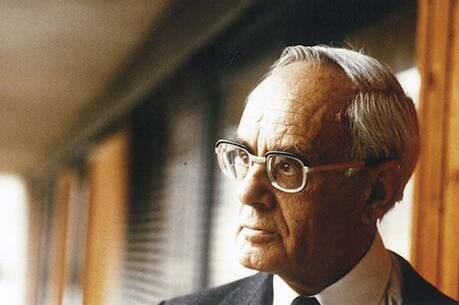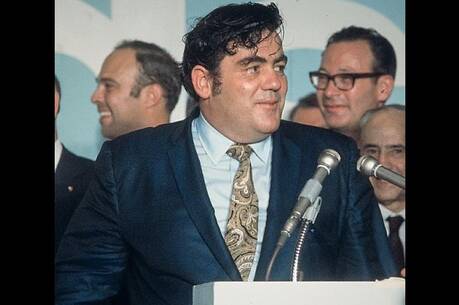Rooted in Place
Though often labeled a modern-day Thoreau, Wendell Berry is perhaps more akin to a biblical prophet, a lone voice crying, not in the wilderness, but from his own farm. Like Isaiah and Amos, Berry is able to discern the embedded patterns of corruption and injustice in a culture of haves and have-nots. Yet, unlike his vaticinal forebears, Berry’s challenge comes from a scientifically informed, rurally honed literary, agricultural and ecological imagination.
A Kentucky poet-novelist-essayist-father-farmer, Berry strives in his voluminous writings to express himself not only with craft, intelligence and insight, but with personal integrity. That integrity emanates from a decision made long ago to leave the fertile publishing and creative writing milieu of New York City and return to his ancestral farm in Kentucky, where he, his wife, his four children and their kin raise not only crops and livestock, but a lifeway based on rootedness to a place. For Berry, the cultivation of land and the cultivation of thought are intimately and mysteriously conjoined. It is because modern U.S. society has ignored this nexus, he argues, that so much of our psychological dislocation and ecological horror have occurred.
The 21 essays collected in this volume attempt to articulate, as Norman Wirzba, a philosophy professor at Georgetown College, Ky., notes in his felicitous introduction, that there is no such thing as a “post-agricultural” society as long as we need to eat, and that in severing our ties to the land, whether it be in the name of progress or liberation, we in North America will ensure the “eventual withering and death of life.” Recent trends in climate change, soil erosion and species extinction explored in last spring’s North American Free Trade environmental report tend to support such an apocalyptic assessment—a report prepared not by farmers or poets, but by free-trade social scientists.
Clustered around five themes—geobiography, agrarian critique of consumer culture, fundamentals, economics and religion—this volume reveals not so much an evolution in Berry’s thought as a ripening. What the essays make manifest is that Berry, when it comes to critiquing contemporary North American culture, is neither shy nor nuanced. He is not a diplomat, nor does he strive to be. The harshness of his critique stems from solidarity not only with the earth but also with a particular swatch of soil, a solidarity that few in North America can now experience. (This dismantling of rootedness to place is provocatively explored in Berry’s perhaps most celebrated work, The Unsettling of America [1977], which is excerpted in this volume.)
For those new to Berry’s work, or those who wish to discern the agricultural basis of his thinking, this volume is a useful guide. Beginning with autobiographical reflections on his own deepening awareness of his need to return to the land his great-grandfather farmed, and moving into his expansive reflection on the importance of wildness, the hollowness of incessant consumerism and the need for a Christianity that sheds the arrogance of its anthropocentrism and moves toward an understanding of a mystical involvement with—and dependence upon—nature, this collection provides a rich overview of Berry’s intellectual and personal cultivation.
His writings on Christianity are particularly suggestive, both in their diagnosis and in their critique of contemporary economic and cultural life. Berry writes: “In denying the holiness of the body and the so-called physical reality of the world—and in denying support to the good economy, the good work, by which alone the Creation can receive due honor—modern Christianity generally has cut itself off from both nature and culture.... Despite its protests to the contrary, modern Christianity has become willy-nilly the religion of the state and the status quo.... It has, for the most part, stood silently by while a predatory economy has ravaged the world, destroyed its natural beauty, divided and plundered its human communities and households.”
In a more searing and far-reaching indictment of Christianity than Lynn White Jr. proffered in his 1967 polemic, The Historical Roots of Our Ecologic Crisis, Berry, perhaps owing to his personal interconnections, provides a “seamless garment” approach to economy, ecology, poverty, racism and social injustice. For him these are all of a piece and have similar origins. His urgent appeal is that this sense of seamlessness be brought to bear by the Christian world on the unseemly detritus of a global household racked by blistering poverty and diseased by ecological despoliation. To paraphrase the old Protestant adage, Berry sees the Gospel as not only comforting the afflicted, but afflicting the comfortable.
This volume achieves the latter task most effectively.
This article also appeared in print, under the headline “Rooted in Place,” in the September 30, 2002, issue.








